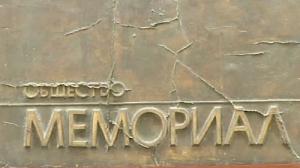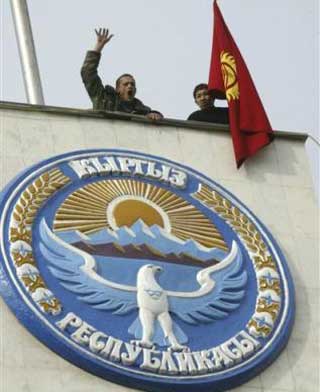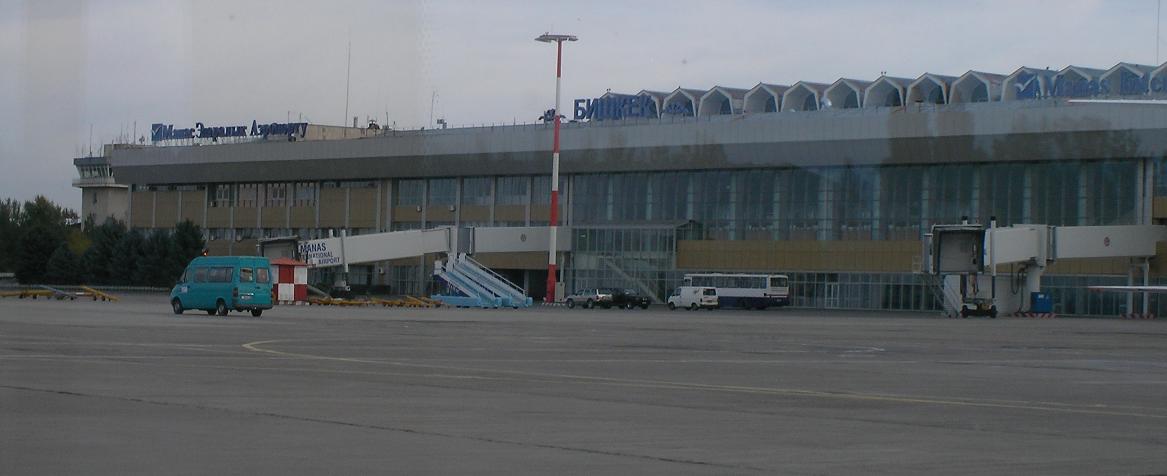Yesterday further details of Bakhrom’s lengthy and shocking ordeal were made available.
HRH Oslo provides a translation of the information presented by Memorial’s Vitaliy Ponomarev (find full version here).
<...>
On the evening of 18 November Bakhrom was eating dinner with a journalist from Radio Free Europe/Radio Liberty, Sherzod Jusupov in Issyk-Kul Café in downtown Osh. <...>
 Approximately at 6.10 PM, Bakhrom and Sherzod left the café. They had only walked about 10 meters when they were unexpectedly stopped by two police officers on the pretext of a documents check. Sherzod was taken to the City police station (GOVD), and released after about half an hour. The other police officer checked Bakhrom’s passport and gave it back, saying “Everything’s in order.”
Approximately at 6.10 PM, Bakhrom and Sherzod left the café. They had only walked about 10 meters when they were unexpectedly stopped by two police officers on the pretext of a documents check. Sherzod was taken to the City police station (GOVD), and released after about half an hour. The other police officer checked Bakhrom’s passport and gave it back, saying “Everything’s in order.”
As soon as the police officer stepped away, Bakhrom was immediately surrounded by a number of people in civilian clothing and taken by the arms. On the human rights defender’s request, one of them showed an ID-card from the GSNB (Kyrgyz security).
“All right, we brought him in, come, come”
Bakhrom was not allowed to call anyone, his mobile telephone and the bag with his camera was taken from him with the words “Maybe you have explosives in the bag”. He was forced into a car and taken to the GSNB building. Another car with local GSNB officers followed them to the building.
The car with the detained drove into the gates of the GSNB building. Bakhrom was taken inside, with his head forcefully held down with the words “The building is a secret object, you are not allowed to see it”, and then taken to an office on the first floor. His belt, tie and money (about 450 USD) were taken from him, his pockets were emptied, and a camera and three notebooks with notes were taken from the bag and brought to the commander. One of the officers who arrested him called somewhere on his mobile phone and said, “All right, we brought him in, come, come”.
<...>
 “They’ll put you up against the wall”
“They’ll put you up against the wall”
Bakhrom demanded that the Russian consular officer be called in and that an official protocol be kept, but he was told that he would not need neither the consular officer or a protocol, as security service officers from Andizhan were on their way to Osh, and that he would be handed over to them. “They’ll come now and put you up against the wall”.
<...>
In the office where Bakhrom was being interrogated, no less than three GSNB officers were continuously present. They demanded that he write an explanation <...>.
Some of the questions were reminiscent of a parody of spy movies : “Do you read namaz? Who sent you? What task were you fulfilling? Admit it, you came here to organize an uprising, a coup. We know everything about you. Why did you organize a demonstration outside Kyrgyzstan’s Embassy in Moscow? Why do you have the telephone number of a GSNB officer in your notebook? Were you planning to murder him? And why did you write that they beat up this guy, they planted flyers on that guy? Are you trying to destabilize the situation? Who heads Memorial? Orlov? How old is Orlov? Do you work with Ponomarev? Yes, he’s a “well-known personality”. Who finances your organization? If you don’t admit it, we’ll bring those who fought with the rebels, they are merciless. We’ll put you in cell number 4, then you’ll see…”
‘They should be exterminated’
Some of these questions were repeated several times. An unknown uniformed person came into the office a couple of times, he cursed and insulted Bakhrom, screamed “This is a Sart from Moscow! (‘Sart’ is a derogotary term for ethnic Uzbeks). They should be exterminated. We’ll give him to the special services, they’ll break all his bones.” The more “friendly” officers calmed down their colleague, “Don’t say that. We’ll put him in the cell afterwards, you can go in and take care of him yourself.”
<...>
‘Our government is the most democratic, you know’ A young Kyrgyz expert who glanced through the stack of court documents and other documents (collected by Khamroev), exclaimed dogmatically, “The crime is totally evident. There is secret information here. We’ll open a case.” He asked Bakhrom, “Why did you collect these documents?”. His answer, “For monitoring of oppression”, caused laughter among the GSNB officers, “What repression are you talking about? Our government is the most democratic, you know”.
A young Kyrgyz expert who glanced through the stack of court documents and other documents (collected by Khamroev), exclaimed dogmatically, “The crime is totally evident. There is secret information here. We’ll open a case.” He asked Bakhrom, “Why did you collect these documents?”. His answer, “For monitoring of oppression”, caused laughter among the GSNB officers, “What repression are you talking about? Our government is the most democratic, you know”.
Other findings were given the same kind of one-sided interpretation.
A photograph from the border with Uzbekistan for an article on border problems was evaluated as evidence of “attempts to destabilize the situation in Uzbekistan from here”. “You were probably preparing a revolt? Where have you hid the guns? We had a revolutionary here, too – Alisher, you know what happened to him?”
Memorial’s report on the Nookat events were, according to GSNB officers “a real crime, defamation, extremism, sowing hatred.” “How many copies did you hand out? Who gave them to you? Did you want to destabilize the situation?” “You and your colleagues shouldn’t touch Kyrgyzstan. Tell them whomever comes to us with the sword, will leave by the sword. Our hands reach far, and we have our people in the Russian Federation too.”
<...>
‘We know who you’re working for’
Attempts to explain that court documents are public documents, and that there were no secret materials among the confiscated papers were left without any answer. “There are enough materials here to sentence you.”
<...>
Another officer joined the conversation, “You’re saying you didn’t commit any crimes? Everyone who end up here say that. We know who you’re working for.”
<...>
The GSNB officer who led the conversation was also irritated at Bakhrom’s independent position, “Why are you not agreeing with the head of the department, with what we’re saying, and always go at your own thing, like a Hizb-ut-Tahrir member? Do you agree, that we didn’t plant anything on you? We haven’t done anything against you, you’re sitting in a warm office. If it weren’t for the orders, we would’ve thrown you to the wall a long time ago, tossed you in the ‘refrigerator’, and then to the criminals, you would be on your knees begging forgiveness.”
‘Happy end’: ‘Apology’ and expulsion Around the middle of the second night, Bakhrom, who was in a stressed situation, agreed to follow GSNB’s demands and wrote a short ‘apology’ : that he hadn’t spread the 4 flyers from Hizb-ut-Tahrir they had confiscated , that he hadn’t even had time to read them, that he would not break the law; and if it was illegal to keep such papers, he asked Kyrgyz authorities to forgive him for this.
Around the middle of the second night, Bakhrom, who was in a stressed situation, agreed to follow GSNB’s demands and wrote a short ‘apology’ : that he hadn’t spread the 4 flyers from Hizb-ut-Tahrir they had confiscated , that he hadn’t even had time to read them, that he would not break the law; and if it was illegal to keep such papers, he asked Kyrgyz authorities to forgive him for this.
<...>
After an hour a boss who did not say his name told the human rights defender that he would be sent out of the country.
The human rights defender was not returned his money (they said that everything had been spent on his return ticket, which he himself never saw). GSNB also kept his mobile phone with SIM-cards from Moscow and Kyrgyzstan, all papers and “dangerous” notes and the memory stick to his digital camera with hundreds of photographs mostly with family pictures.
(INFORMATION FROM HUMAN RIGHTS CENTER MEMORIAL, 23.11.2009)





